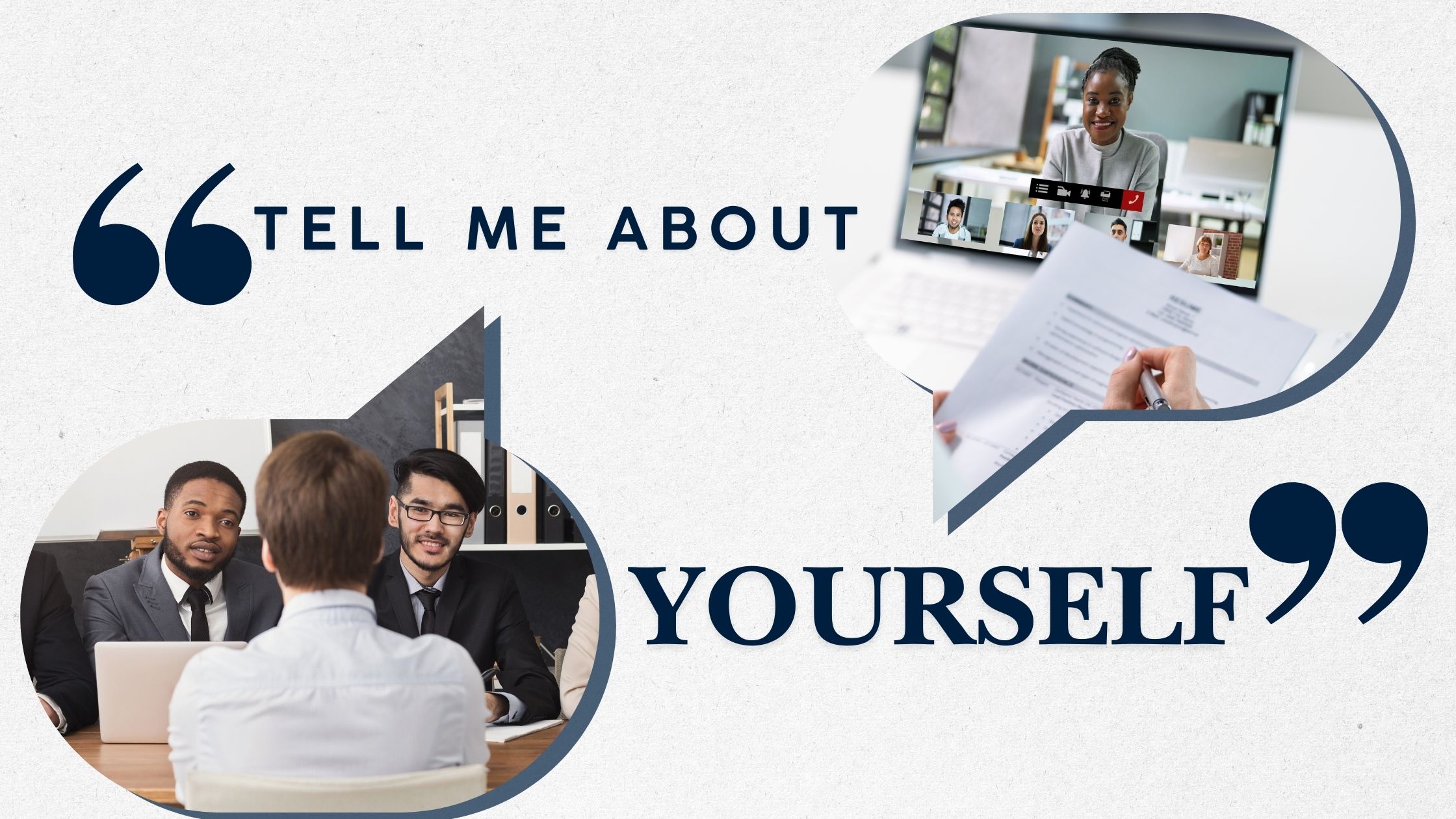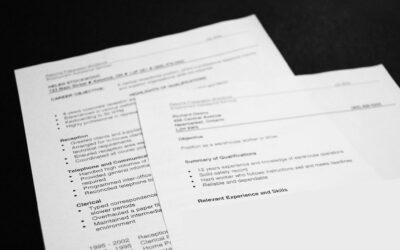Most interviews still begin with the same question: “Tell me about yourself.”
It sounds simple. It isn’t.
Today, in the modern hiring environment – where first-round interviews are often virtual, faster, and more structured than ever – your answer to this question often shapes an interviewer’s first real impression. Within the first two minutes, they assess your confidence, communication style, career direction, and overall fit.
As a result, strong candidates get screened out every day – not because they lack experience, but because their answers sound unfocused, generic, or disconnected from what employers actually need.
The good news, however, is that you can prepare for this question more easily than almost any other – and it often delivers the biggest payoff.
This article covers:
- What employers really listen for
- How to structure a strong, modern response
- How to position yourself throughout the interview
What employers really look for
When interviewers ask this question, they don’t want your life story or a timeline of every job you’ve held.
Instead, they want a clear, consistent story that answers three silent questions:
- Who are you professionally?
- What value do you bring?
- Why are you here?
Specifically, hiring managers listen for how your skills, experiences, and strengths connect to their challenges. At the same time, they pay close attention to patterns – impact, growth, problem-solving, leadership, adaptability – not job titles alone.
Today employers also look for:
- Relevance, not volume of experience
- Results and outcomes
- Clear, confident communication
- Authenticity over overly polished or AI-generated responses
Ultimately, your goal is simple: make it easy for them to picture you in the role.
How to structure your response
A strong answer stays intentional, focused, and typically runs 90 seconds to two minutes.
To do this effectively, a proven format to use:
Present → Past → Future
1. Present: Who you are professionally
First, open with a snapshot of what you do and where you stand in your career.
- Your professional identity
- Your strongest skills
- The problems you solve
This immediately gives the interviewer instant context.
2. Past: What proves it
Next, share specific examples that demonstrate your impact.
Focus on:
- Challenges you handled
- Projects you completed
- Results you achieved
- Skills you developed that match this role
Whenever possible, include outcomes: growth, efficiency, engagement, revenue, quality, risk reduction, or culture impact. As a result, your credibility increases quickly.
3. Future: Why you’re here
Finally, connect your experience to where you’re going.
- Why this role fits your direction
- How your background prepares you for this opportunity
- What excites you about contributing to this organization
This is where you align your story to their needs.
What to emphasize
Throughout your answer, consistently highlight:
- Problems you know how to solve
- Value you know how to create
- Confidence in your ability to contribute
In particular, strong responses often include:
- Meaningful challenges
- Relevant learning experiences
- Leadership or cross-functional moments
- Times you improved a process, team, or outcome
At the same time, share enough detail to stay credible, but don’t ramble. For example, avoid listing every job you’ve held or explaining why you left past roles. Those topics naturally come later.
Great follow-up responses and interview mindset
At its core, your interview serves as a professional evaluation of fit, contribution, and readiness.
Therefore, throughout the conversation, your responses should reinforce:
- Your understanding of their priorities
- Your ability to solve their problems
- Your awareness of what success looks like
If a question feels unclear, ask for clarification. In fact, strong candidates slow the conversation down to get it right.
Before the interview, prepare questions in advance to uncover:
- The team’s top priorities
- The challenges this role faces
- How leaders measure success
Even if the interviewer doesn’t invite questions, ask if you may share a few.
Above all, every response should answer one underlying question:
“What’s in it for us if we hire you?”
Final coaching tip
Today, many candidates now rely heavily on AI-generated interview answers. Because of this, employers notice generic responses faster than ever. However, specific stories, relevant impact, and clear direction stand out.
When you prepare this answer well, you don’t just start the interview – you guide it.



